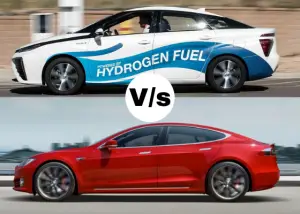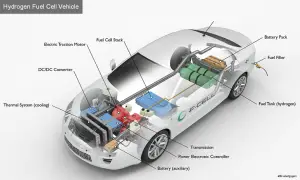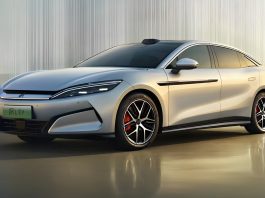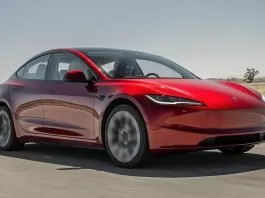Nowadays all global automakers are racing towards making their cars zero-emission. Stricter norms and regulations along with the farsighted vision to reduce the carbon emissions of the vehicles. Manufacturers are improving the engines and increasing the overall energy utilization of the hydrocarbon fuels as well as looking for alternate technologies to move the cars. An answer to this has been the advancements in the electric vehicle segment. Exponential growth in terms of technology and practical usability has observed since the past decade.

The people globally are accepting electric cars as well as they are now being more aware of their benefits. The world has been going berserk over the Tesla offerings because of their out of the box thinking. Adding to this equation is the participation of other automakers, which are actively advancing toward making better and affordable electric cars for daily drivers as well for enthusiasts. The electric car segment has seen immense progress in a very short time. The global awareness towards the improvement of the environment has been becoming the buyer’s favorite.
Interestingly, battery electric vehicles aren’t the only alternative to reduce carbon footprint.
Experiments with hydrogen fuel cells have been tried for decades. Hydrogen because of its abundance in the universe can be a very practical fuel to be converted into electric energy. Compressed hydrogen when in liquid form can be stored in a tank, with the only emissions being water. How eco-friendly is that right.
What we have learned so far is that hydrogen fuel cell technology is too complicated for mass adoption in automobiles. Automakers like Toyota have been working on such products and trying to bring the costs of their production down and make it available and usable by the masses. Toyota has taken the same approach in the past with the Prius Hybrid vehicle following its success all other automakers have followed the footsteps and launched their own versions of PHEV’s. Toyota’s hydrogen cell fuel car, the Mirai debuted its second-generation model at the Tokyo Motor Show. Toyota firmly believes that this technology is better for the environment than battery electric vehicles. To understand this better you can check our article – Environmental Impact of Electric Car Batteries.
How do Battery Electric Car and Hydrogen Fuel Cell Cars Work?
| Battery Electric Car | Hydrogen Fuel Cell Car |
|
|
A hydrogen fuel cell car comes equipped with a high-pressure hydrogen tank that feeds a fuel cell. This pressurized hydrogen is further mixed with oxygen. This mixture initiates an electrochemical reaction producing electricity to power the electric motor, without any toxic exhaust emissions. The only emission is water and heat.
Key Components of a Hydrogen Fuel Cell Electric Car

- Battery (auxiliary)
- Battery pack
- DC/DC converter electric traction motor (FCEV)
- Fuel cell stack
- Fuel filler
- Fuel tank (hydrogen)
- Power electronics controller (FCEV)
- Thermal system (cooling) – (FCEV
- Transmission (electric)
Battery Electric vs. Hydrogen Fuel Cell Cars
Let’s understand some interesting differences between Battery electric cars and Hydrogen Fuel Cell Cars.
Range
The range of a car mainly depends on their costs (Depends on Battery pack size). The more expensive they are, the more is the range they have to offer per charge. The battery range is depending on how expensive the car is and what technology and fuel it uses to get into motion.
Battery Electric Vehicles |
Hydrogen Fuel Cell Cars |
|
|
Hydrogen vs Electric Cars: Environmental Impact
It’s an extremely common misapprehension that is being marketed across the globe that electric and hydrogen cars are zero emissions. This is partially true as no emissive gases come out of their exhausts. What many car lovers don’t know is the manufacturing process for both types of vehicles is still responsible for CO2 being pumped into the atmosphere.
Battery Electric Cars |
Hydrogen Fuel Cell Cars |
|
|
Cost of Ownership
Newer technologies incur huge costs in their R&D and also because their mass production is a barrier their cost gets significantly high. The cost of ownership goes down as the technology gets better with time undergoing several iterations. Another factor is that the lack of competition may result in a product to charge higher margins on purchase and services.
Battery Electric Cars |
Hydrogen Fuel Cell Cars |
|
|
The factors standing in the way of mass adoption of Fuel Cell Vehicles
- The refuelling options are very limited at present even though refuelling a FCEV is very similar in time to an internal combustion engine vehicle.
- Expansion of the refuelling infrastructure fairly expensive.
- Unlike BEVs, FCEV’s can’t be conveniently charged at the passenger’s home.
- The CO2 emissions from a BEV in a lifetime are just slightly lower than that of an ICE vehicle but are significantly lower than FCEV, as the greater part of hydrogen is produced using fossil fuels, rather than renewable sources.
- Hydrogen fuel cells are very expensive.
- Safety concerns regarding production and storage of Hydrogen, as this gas is extremely flammable.
Which Zero Emission Technology Is More Sustainable?
Despite all the benefits stated, most of the hydrogen is produced by the process of methane reforming. A lot of the carbon monoxide and dioxide are generated while producing hydrogen. Yet, as technology grows, in future the electrolysis of water to extract hydrogen can be improved and used as its efficiency increases with time. Also, it is to be noted that Hydrogen cars use energy twice, first when making hydrogen and then using it to power vehicles. While in the case of battery-electric cars the energy is just used once from the grid. This becomes an important benefit for Battery Electric Vehicles. Another disadvantage is that the conversion of electricity into hydrogen and again to electricity adds to energy losses up to 45%, hence decreasing the efficiency of the process.
Newer methods of hydrogen production like the proton exchange membrane are under development, which, might deliver an 86% efficiency.
Hydrogen is the most common element in the universe, yet doesn’t exist in its pure form.
Verdict
While electric cars are the first choice of automakers today but a number of manufacturers are still biased towards hydrogen fuel cell cars ensuring that the technology may one day find its place in real terms. Hydrogen FCEVs lag so many years behind BEV’s in terms of innovation, making them expensive to own and run.
Given sufficient time and money, hydrogen FCEVs will become an accessible option for masses. But electric cars are developing at a speedy rate, and in the future, more environmentally-friendly battery options may open up. For now, though, electric cars are the go-to mode of transport for zero emissions.



“The CO2 emissions from a BEV in a lifetime are just slightly lower than that of an ICE vehicle but are significantly lower than FCEV” This seems highly suspect. If it is true then why are we bothering with phasing our ICE vehicles? My BEV is powered strictly with power generated by Hydro, Nuclear, Wind and Solar…in other words Energy sources that most consider to be Green. The manufacturing CO2 output of my BEV is considered to be equivalent to an ICE 1 to 1 1/2 years after production…so how is it even remotely possible that the lifetime emissions are slightly lower than an ICE vehicle? Even if 50% of the electricity consumed came from Coal it would still be better than an ICE…I don’t find this statistic to be credible in this article.